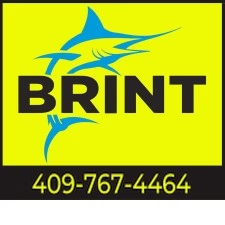
Last week a friend, neighbor, and fellow fisherman suffered a major heart attack. He underwent two major procedures within five days: heart catheterization and the placement of stents in some of his arteries. He is home now, but he has a long way to go before he hits the water again. This article will discuss the important topics that must be addressed before a recreational boater gets back out on the water.
Doctor’s Release
The doctor’s release to engage in certain activity is a must but still bears mentioning. When asking for a release, you have to be very specific. It is not enough to ask when you may resume boating. Your surgeon may have a picture in his mind of you putt-putting along in a jon boat on a smooth pond. Here is the old joke about post-surgery activity:
Patient: Doctor, will I be able to play the piano after this surgery?
Physician: Yes, you should be able to play piano after I release you generally.
Patient: That’s great because I never could play before.
The discussion about returning to boating should cover many topics, such as those below. A quick answer could be the wrong answer unless a full assessment of the patient’s condition is made, as we learned from the joke above.
Pre-Existing Conditions
Before a physician decides when you may resume a specific activity, they need to take pre-existing conditions into account. Do not assume that the physician to whom you are asking for a release is fully aware of your pre-existing conditions. There are several pre-existing conditions that may affect how long it takes for you to heal. Here are a few that should be mentioned in any discussion about a release.
Age and General Health
Age and general health are well-known factors in recovering from major surgery. They are closely related to how quickly you recover. An older person in great general health may recover much more quickly than a younger counterpart in marginal health. Persons who exercise regularly tend to recover more quickly from surgery.
Diabetes
In the United States, according to the Centers for Disease Control approximately 11.6 percent of the population has diabetes (over 38.4 million people). About 8.7 million adults have diabetes and don’t know it. Another 97.6 million adults have prediabetes. Aside from its propensity to kill those who have it, or at least shorten their lives drastically, diabetes greatly slows the healing process, and in many cases leads to amputation due to a wound not healing at all.
Heart Disease
Heart disease is the leading cause of death for adults of all races and genders. It caused 695,000 deaths in 2021, which is 20.1 percent of all deaths. About 6.3 million Americans over age 20 have coronary heart disease. That is about seven percent of the population.
Atrial Fibrillation
Atrial fibrillation, known as Afib, is a common irregular and often rapid heartbeat where the heart’s two upper chambers beat in a chaotic and uncoordinated way. Symptoms include heart palpitations, shortness of breath, dizziness, fatigue, chest pain, and fainting. Its causes are heart disease, sleep apnea, excessive alcohol intake, and obesity. Complications are stroke and heart failure.
High Blood Pressure (Hypertension)
Hypertension is the leading preventable risk factor for cardiovascular disease, including heart attack and stroke. It is a major cause of kidney disease and can lead to blindness.
This, That, and the Other Thing
The trend in America, especially as we age, is to have not just one but several risk factors. One common combination is diabetes, hypertension, and atrial fibrillation. One might ask which came first: the chicken, the egg, the cart, or the horse, or two or more at the same time.
The next issue is to describe to your physician exactly what types of boating activity you plan to engage in. Below are the types of risks you should discuss.
Ride vs. Operate
You might get an okay to participate in boating activities sooner if you limit your activities to passively riding rather than actively operating the boat. You could take a “see how it goes” with just riding before attempting to stand and steer as it were. By riding you eliminate some of the risk factors associated with operating the boat.
Worsening Inflammation
Your innards do not like to be manipulated. When you cut into the human body and move things around, there is always accompanying inflammation. I had a friend who had a vasectomy. His physician told him to relax for three days and don’t do anything. He was my conductor, and we ran trains between Houston and Baton Rouge together. Darned if he didn’t show up for work just a couple of hours after his surgery. I told him to just sit on the caboose and the brakemen and I would handle all the station work (setting out cars and picking up cars). But no, he felt fine and wasn’t about to slack off. About 30 miles out from Baton Rouge it became apparent that he was going to need emergency medical attention. The slight bouncing around on the caboose was enough to worsen his inflammation to the point where his jeans had to be cut off. He spent three days in the hospital and took a week off from work.
Straining the Incision
In 2004 I had emergency surgery to remove a tumor on my colon that had ruptured. My incision began at my diaphragm and went all the way down to my pelvic bone. Rather than stitches, which would have taken hours to close me, they stapled me shut with about 100 staples. I was not allowed to drive, and a couple of weeks later I found out why. I decided to drive to work, since it was less than a mile. When I got to the end of my street and turned left, as I turned the steering wheel I heard pop-pop-pop-pop. I had strained the incision and re-opened it about three inches. I was also told not to reach over chest high. I lived up to that one. The first time I approached chest high reaching for something I felt a sharp pain. I checked and all was okay, but I learned from the first incident not to press my luck. Although an incision may look fully closed, the skin is just barely attached until about six months of recovery.
Risk of Infection
We have all heard stories about the guys who have barely dipped their foot in the Gulf and developed an infection with flesh-eating bacteria. As a retired clinical microbiologist, I can tell you there are no flesh-eating bacteria, but our waters are full of bacteria that produce toxins that destroy flesh and often result in death. There is always a wound involved, because these bacteria cannot bore through intact human skin. So, if there is even a chance your incision is not completely closed, stay away from the water.
Pain Killer Risk
If you are lucky, your pain killer will either stop all or most pain or reduce the level of pain to an extent where the pain is minor. Pain is not a bad thing. It has purpose when you are injured. It prevents you from moving an affected body part or at least tells you there is something wrong in the area of pain. Surgery is a planned injury. If you must take a pain killer, you must severely limit your activities that might make the injury worse. Don’t think that because there is no pain there is no further injury.
Risk of Falling
If you remember that surgery recovery often includes prescription medications, then understand that many medications you take such as painkillers and antibiotics may cause dizziness or balance problems. Just look at your prescriptions. Those yellow labels remind you of possible side effects that affect your balance.
Summary
If you are an avid recreational boater, an important issue for you after surgery is when you can get back out on the water. Be sure to take the safe route and have a long conversation with your physician. Once cleared or cleared with conditions, take all the risk factors mentioned here into consideration.




